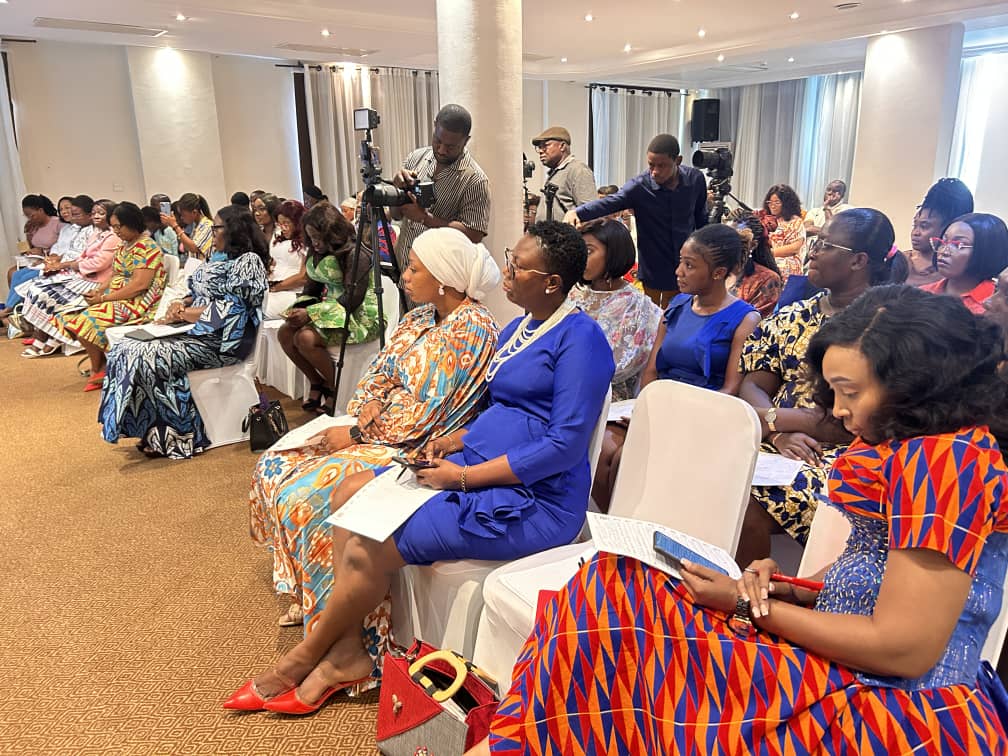
By Sandra Agyeiwaa OTOO
The Economic Community of West African States (ECOWAS) Commission and TradeMark Africa have concluded the Abidjan-Lagos Corridor Sanitary and Phytosanitary Standards (SPS)/Technical Barriers to Trade (TBT) Forum in Accra to address quality challenges affecting trade competitiveness along West Africa’s busiest trade route.
The event also aimed at strengthening trade standards and improving the efficiency of goods movement along the Abidjan–Lagos Corridor.
With support from the United Kingdom (UK) Government through the Foreign, Commonwealth and Development Office (FCDO), the event brought together government officials, private sector players and regional institutions from Côte d’Ivoire, Ghana, Togo, Benin and Nigeria.
Participants developed a Corridor SPS/TBT Action Roadmap (2025–2027) designed to harmonise standards, strengthen quality systems and improve coordination at border points.
The discussions also advanced regional implementation of the African Continental Free Trade Area (AfCFTA), especially the annexes that seek to reduce technical barriers to trade and safeguard human, animal and plant health. Stakeholders agreed on practical steps to enhance cooperation, transparency and harmonisation of standards to ensure safer, faster and more predictable trade flows.
Highlighting the strategic importance of the Abidjan–Lagos Corridor, Koissi Midaye, Senior Programme Officer for Quality and Standards at the ECOWAS Commission, noted that it continues to drive West Africa’s trade ambitions, positioning the latest partnership as a clear step toward ECOWAS’ Vision 2050 of a seamless, prosperous region built on trust and unified standards.
“The Abidjan–Lagos Corridor is the heartbeat of West African trade. This partnership reflects ECOWAS’ Vision 2050 of a borderless, prosperous region built on trust, standards and shared prosperity,” he stated.
Harriet Gayi, Regional Director for West Africa and the AfCFTA at TradeMark Africa (TMA), emphasised that standards remain a critical pillar of trade facilitation. According to her, production capacity alone does not guarantee market access.
A business in Accra, she noted, cannot confidently enter regional markets if its goods do not comply with the requirements in places like Abidjan or Kigali.
She also added that the engagement at the event reflects a clear commitment to driving strategic action across West Africa. The unified Corridor SPS/TBT Action Roadmap, she explained, will outline practical steps and targeted support needed to ease bottlenecks and ensure goods move more efficiently across borders.
“Standards are a crucial part of the trade facilitation puzzle. Manufacturing alone is not enough. A manufacturer in Accra can’t access regional markets if their products fail to meet the standards required in Abidjan or Kigali. Our presence here today is a direct response to the call for strategic action in West Africa. A consolidated Corridor SPS/TBT Action Roadmap will provide practical recommendations for focused support to facilitate smoother and faster clearance of goods at borders,” she explained.
This initiative, that will also see a framework developed to guide ECOWAS–EAC collaboration on trade standards and SPS systems, builds on TMA’s proven success in trade facilitation in support of the AfCFTA, including reducing cargo transit times by 16.5 percent and border crossing times by up to 70 percent in East Africa. These lessons are now being adapted to West Africa to enhance food safety and competitiveness of regional value chains.
The forum forms part of a week-long series of ECOWAS engagements in Accra, convened by Dr. Kalilou Sylla, Commissioner and Head of the ECOWAS Department of Economic Affairs and Agriculture. The meetings were formally opened by Hon. Eric Opoku, Ghana’s Minister of Food and Agriculture; Hon. Amelia Arthur, Minister for Fisheries and Aquaculture; and Hon. Elizabeth Ofosu-Adjare, Minister for Trade, Agribusiness and Industry.
The post ECOWAS, TMA advance unified standards for trade appeared first on The Business & Financial Times.
Read Full Story
















Facebook
Twitter
Pinterest
Instagram
Google+
YouTube
LinkedIn
RSS